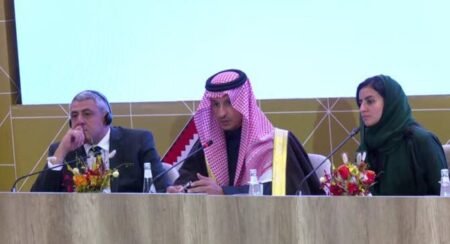MACAO: The leading international tourism platform designed to promote the global tourism industry, Global Tourism Economy Forum, with a special focus on China, is scheduled to host its 6th edition from October 16 to 17 in Macao.
As the 2017 is the International Year of Sustainable Tourism for Development, GTEF 2017 will engage prominent leaders in the public and private sectors in the discussion on Regional Collaboration and how tourism stakeholders break down barriers find common ground and grow stronger together.
The first stop of GTEF 2017’s international roadshow was ITB Berlin, the world’s largest travel trade show. Entering its 51st edition, ITB Berlin provides a platform for over 10,000 exhibitors from 180 countries and regions.
Capitalising on ITB Berlin’s long-standing and influential European-wide reach, GTEF aimed to create a compelling presence at the prestigious trade show to strengthen awareness of the Forum, China’s critical role in global tourism and Macao’s reinvented international image among worldwide tourism stakeholders.
At ITB Berlin, the GTEF team pursued a full schedule of activities from March 8 to 10, including a formal presentation of GTEF 2017 to the 16 Central and Eastern European countries (CEECs) at the Hungarian Embassy in Berlin, meetings with representatives from these countries, and promotional activities along with the Macao Government Tourism Office at the exhibition booth at the trade show venue.
In addition to featuring the 16 diverse and culturally rich Central and Eastern European countries (namely Albania, Bosnia & Herzegovina, Bulgaria, Croatia, Czech Republic, Estonia, Hungary, Latvia, Lithuania, Macedonia, Montenegro, Poland, Romania, Serbia, Slovakia and Slovenia), GTEF 2017 will present the spectacular Guizhou Province as the Featured Chinese Province, bringing a truly promising tourism market mix to the Forum. GTEF will once again offer both rewarding programmes and unrivalled business networking and matching opportunities to delegates from China and around the world, so that they could capitalize on the momentum of tourism development and growth.




